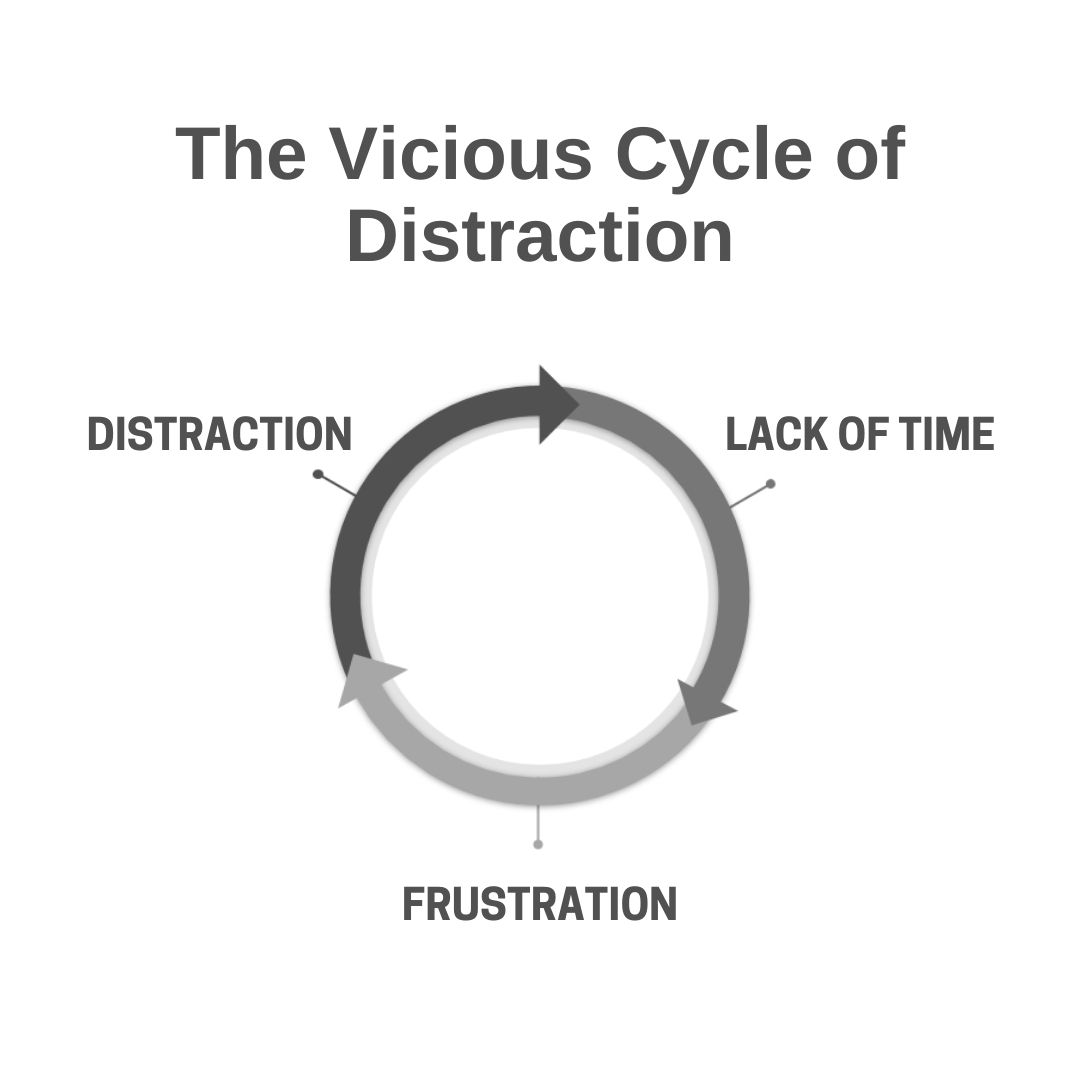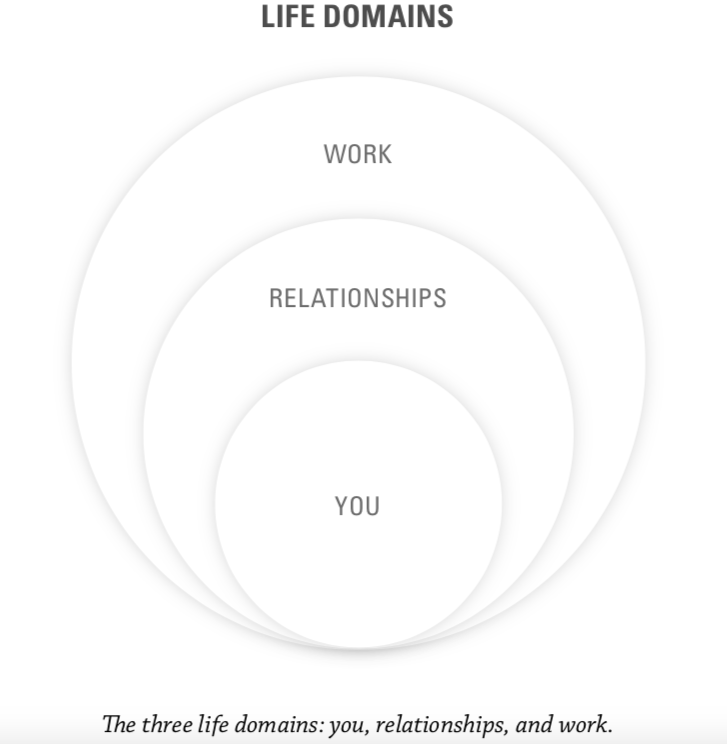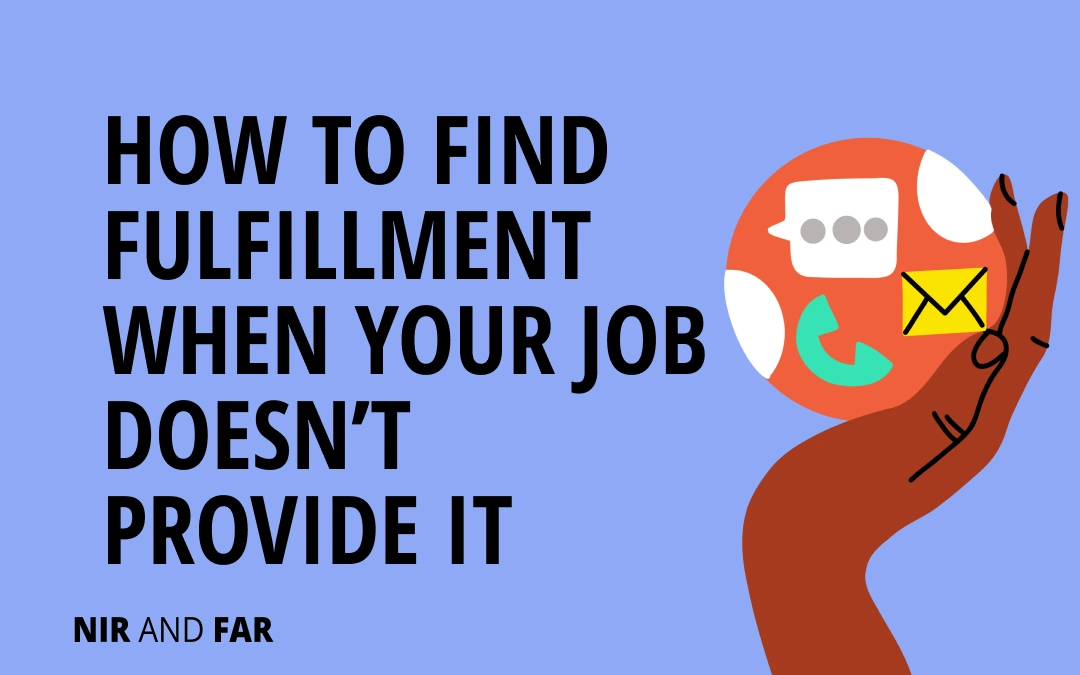What to do when your work feels meaningless—but quitting isn’t an option (yet).
I can’t tell you how many conversations I’ve had with friends and readers who feel stuck in jobs that don’t fulfill them. They’re not necessarily in toxic work environments or dealing with poor treatment (although that happens too—it’s the main cause of dissatisfaction at work). More often, they’re simply bored, feel undervalued, or think their work doesn’t matter.
They’re not alone. A 2024 Gallup report found that 62 percent of people globally are not engaged at work, and another 15 percent are actively disengaged. That means nearly 8 in 10 people feel checked out while on the clock.
Our job enables us to provide for ourselves and our families, but that can make us feel all the more shackled to a work situation that makes us miserable or unfulfilled. Are we meant to suck it up? Do we just have to accept the fact that not everyone gets to have a fulfilling job?
No. Even when your job doesn’t seem meaningful, you can still create meaning. Fulfillment doesn’t have to be something your job gives you. It can be something you bring to your job.
What Happens When Your Work Feels Meaningless
When we don’t feel good at work, we don’t feel good, period. Dissatisfaction at work tends to seep into other parts of our lives, affecting our self-worth and our relationships. Ironically, feeling unfulfilled often makes us worse at our jobs. It also tends to cause work to take over other domains of our lives.
Dissatisfaction is a powerful internal trigger—a negative feeling that drives us to distraction. The drive to relieve discomfort, including the emotional kind, is the root cause of all our behavior, and distraction is one way our brains attempt to deal with that discomfort. At work, when you feel bored with your tasks, undervalued by your boss or coworkers, or regretful that you didn’t choose another career path when you had the chance, you’ll seek relief from that discomfort. So you start scrolling your phone or obsessively checking email, doing anything other than what you’re supposed to be doing.
You may waste away the whole workday thanks to distraction. The projects that you should have worked on during office hours, you’ll now have to work on in the evening, when you could be spending time with family or friends or hobbies. This is how the vicious cycle of distraction functions.

So not only do you not enjoy your job, but you don’t think you’re doing a good job. Feeling that you’re not competent or that you’re not a valuable contributor is a demoralizing feeling that, in turn, pushes you more toward distraction.
Finding fulfillment can break that cycle. But first, we have to question where fulfillment comes from.
Where Does Fulfillment Come From?
Too many of us grew up believing that a job should bring purpose, meaning, and happiness to our lives. But that belief is a cultural construct. Western cultures believe we must be alive for a purpose, to achieve and make money. In the early 1900s, sociologist Max Weber traced this belief back to Protestant values: the idea that material success signifies moral virtue and divine favor. Capitalism and industrialization emphasized innovation, measurable outcomes, productivity, self-reliance, and competition. The American dream, the grandparent of today’s hustle culture, posits that anyone can achieve a better life if they work hard enough.
If you believe that your job should bring you life meaning and fulfillment, it’s no wonder that a job that doesn’t is such a source of discontent for you.
So, consider the beliefs of other cultures.
Many Indigenous groups worldwide view fulfillment differently. As a semi-nomadic people, Aboriginals tend to forego material success; they value relationships, respect, and connectedness among their community and a deep spiritual connection to their land. In the Ecuadorian Amazon, the Achuar people want nothing more than to continue their lifestyle of close family connection and harmony with nature. In North America, the Lakota people live by seven values, including generosity, kinship, and compassion, and historically, their driving principle has been to provide for the general well-being of everyone in their community.
Those Indigenous groups are collectivist cultures, prioritizing the needs of the group over those of the individual. Western cultures are individualist, focused on personal achievement and independence.
The guidebook on how to live a meaningful life doesn’t read the same everywhere. That should give you some perspective: You don’t need your job to fulfill you or define your worth. Many people in the world don’t even believe that it alone could. One study of more than 700 people found that a diverse range of factors contribute to a fulfilled life.
If what gives us fulfillment is a construct, then by changing our mindset, we can find fulfillment even if we have a job we don’t like.
Shift Your Mindset: “I Create My Own Fulfillment”
There is no perfect job. Every job, even if it’s based on your passion, is going to feel like a slog at some point. Mark Twain probably never knew how much misery his quote, “Find a job you enjoy doing, and you will never have to work a day in your life,” would cause.
Of course, there are people who get fulfillment from work. But fulfillment isn’t something you find. It’s something you make.
If you feel unfulfilled, it’s time for a mindset shift: Stop asking, “Why isn’t my job fulfilling me?” and start asking, “How can I bring fulfillment to my job?”
You don’t necessarily need to change jobs. You may just need a new approach to the one you have.
Reframe Your Role: Align with Your Values
Pinpoint how your job enables you to meet your values—or not.
Values are the attributes of the person you want to be. They’re not goals; they’re the guiding principles behind your behavior.
I recommend people identify their values across three life domains: you, your relationships, and your work.

Now ask yourself how your job enables you to fulfill those values.
Even if you dislike your tasks, your job may allow you to meet your values of independence or community. Perhaps your value of altruism allows you to connect with the socially minded mission of your organization, or maybe your job helps you meet your value of creativity.
Seeing your job through the lens of your values helps you to connect with what you do on a personal level, even if your job isn’t perfect.
Transform the Daily Grind with Play
Sometimes the problem isn’t that your job is bad—it’s tedious and boring. Maybe a project or task isn’t intellectually stimulating, or maybe it’s so hard you don’t want to start!
Reimagining the task may help you find the motivation to tackle it by bringing a little play to your work.
Ian Bogost, a professor of interactive computing at the Georgia Institute of Technology, wrote in his book Play Anything that “fun turns out to be fun even if it doesn’t involve much (or any) enjoyment.” Huh?
Bogost tells us that “fun is the aftermath of deliberately manipulating a familiar situation in a new way.” Instead of running away from the pain of doing a task, the idea is to pay such close attention that you find new challenges that provide the novelty to engage our attention and maintain focus when tempted by distraction.
I’m a writer, but sometimes I find the act of writing really hard. I learned to stay focused on the tedious work of writing books by finding the mystery in my work. I write to answer interesting questions and discover novel solutions to old problems.
This woman who works at a pizza shop learned how to fold stacks upon stacks of pizza boxes as fast as she could.
What could finding the fun in your work look like for you?
- Track how fast you can complete certain tasks.
- Create small experiments to improve efficiency.
- Learn a new skill and apply it in your current role.
- Find one thing to improve in your workflow each week.
Even tasks you’re loath to start can become more engaging when you inject creativity and challenge into them. You may discover that finding the fun in your work is its own kind of fulfillment.
Free Habit Tracker
Design your ideal day and build your best life.
Your email address is safe. I don't do the spam thing. Unsubscribe anytime. Privacy Policy.
Seek Fulfillment Outside of Work
Your job is not your whole life.
If your work isn’t a source of deep meaning, find fulfillment elsewhere. Spend quality time with family or friends. Volunteer. Learn something new. Travel. Join a community. Start a side project.
This is why it’s critical to make sure distractions at work don’t cause your job to take over your life. You need to set aside time for the activities that will make you feel you’re spending your time the way you want to.
If you’ve honestly tried these avenues and your job remains a major source of discontent, that’s a clear sign: It’s time to do what you need to do to leave.
Maybe your job clashes with some of your values, or it’s in a field you simply have no interest in. Perhaps nothing you do eases a toxic work environment or helps you build a better relationship with your boss.
If your work is getting in the way of feeling fulfilled, you owe it to yourself and the other people in your life to find a way to be happier.
Related Articles
- Schedule Maker: a Google Sheet to Plan Your Week
- Habit Tracker Template in Google Sheets
- The Ultimate Core Values List: Your Guide to Personal Growth
- Timeboxing: Why It Works and How to Get Started in 2025
- An Illustrated Guide to the 4 Types of Liars
- Hyperbolic Discounting: Why You Make Terrible Life Choices
- Happiness Hack: This One Ritual Made Me Much Happier

